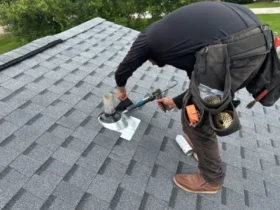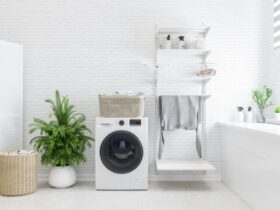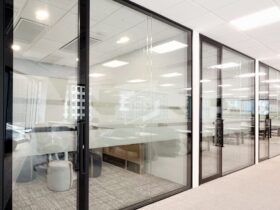Building maintenance is a critical aspect of facilities management that ensures the safety, comfort, and efficiency of buildings. However, different industries have unique maintenance considerations that facilities managers must be aware of. In this article, we will highlight specific maintenance considerations for different industries, including healthcare, hospitality, and retail.
Healthcare
Healthcare facilities, such as hospitals and clinics, have unique maintenance requirements due to the critical nature of the services provided. Facilities managers in the healthcare industry must prioritize patient safety and infection control.
One of the most critical maintenance considerations in healthcare facilities is HVAC systems. Proper ventilation and air filtration are essential to prevent the spread of infectious diseases. Facilities managers must ensure that HVAC systems are properly maintained, including regular filter replacement and duct cleaning.
Another critical consideration is emergency power systems. Healthcare facilities must have backup power systems to ensure that critical equipment and systems remain operational during power outages. Facilities managers must ensure that backup power systems are tested regularly and maintained according to industry standards.
UK facilities management companies that serve healthcare facilities must also ensure compliance with regulatory requirements. This includes ensuring that medical gas systems are properly maintained, fire suppression systems are tested regularly, and water systems are tested for Legionella bacteria.
Hospitality
Hospitality facilities, such as hotels and resorts, have unique maintenance requirements due to the high volume of guests and the importance of providing a comfortable and enjoyable experience.
One critical consideration is the maintenance of guest rooms. Facilities managers must ensure that guest rooms are properly cleaned and maintained to meet guest expectations. This includes regular deep cleaning, regular maintenance of furniture and fixtures, and replacement of linens and bedding.
Another consideration is the maintenance of public spaces, such as lobbies, restaurants, and meeting rooms. These spaces must be kept clean and well-maintained to provide a welcoming and comfortable environment for guests.
Facilities managers in the hospitality industry must also prioritize energy efficiency. Energy costs can be a significant expense for hospitality facilities, and facilities managers must implement energy-saving measures, such as LED lighting, low-flow plumbing fixtures, and energy-efficient HVAC systems, to reduce energy consumption and lower costs.
UK facilities management companies that serve the hospitality industry must also prioritize guest safety and security. This includes ensuring that fire alarms and suppression systems are properly maintained, and implementing security measures such as CCTV and access control systems.
Retail
Retail facilities, such as shopping malls and stores, have unique maintenance requirements due to the high volume of foot traffic and the importance of providing a safe and pleasant shopping experience for customers.
One critical consideration is the maintenance of the building envelope. Facilities managers must ensure that roofs, walls, and windows are properly maintained to prevent leaks and other damage that can compromise the safety and comfort of customers and employees.
Another consideration is the maintenance of parking lots and sidewalks. These areas must be kept clean and well-maintained to prevent slips, trips, and falls that can result in injuries to customers and employees.
Facilities managers in the retail industry must also prioritize energy efficiency. Energy costs can be a significant expense for retail facilities, and facilities managers must implement energy-saving measures, such as LED lighting and energy-efficient HVAC systems, to reduce energy consumption and lower costs.
UK facilities management companies that serve the retail industry must also prioritize security. This includes ensuring that CCTV systems are properly maintained, and implementing access control systems to prevent theft and vandalism.
Conclusion
Building maintenance is a critical aspect of facilities management, and different industries have unique maintenance considerations that facilities managers must be aware of. In the healthcare industry, facilities managers must prioritize patient safety and infection control. In the hospitality industry, facilities managers must prioritize guest comfort and energy efficiency. In the retail industry, facilities managers must prioritize customer safety and security.
UK facilities management companies that serve these industries must be aware of the unique maintenance considerations and implement best practices to ensure that buildings are safe.











